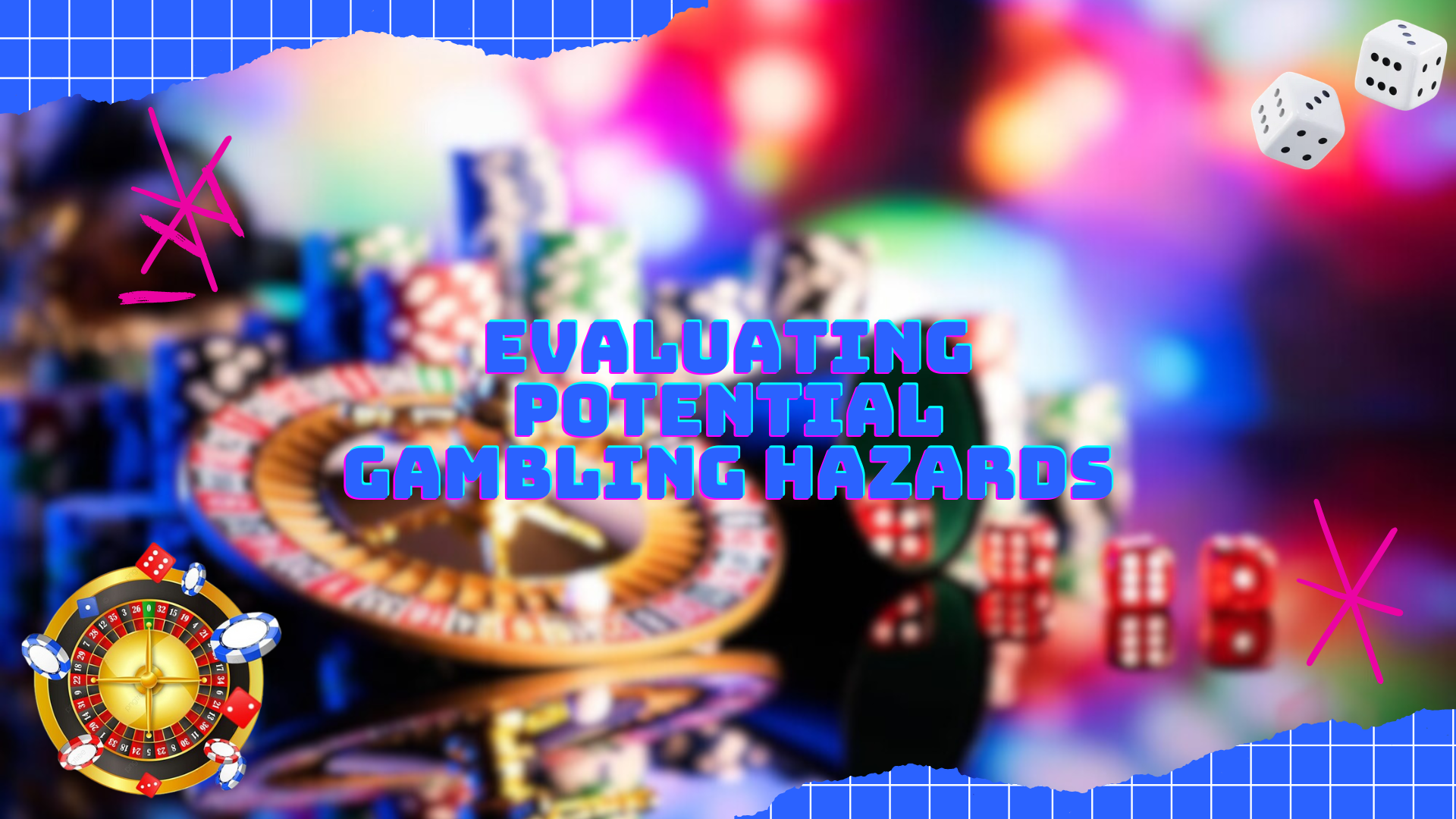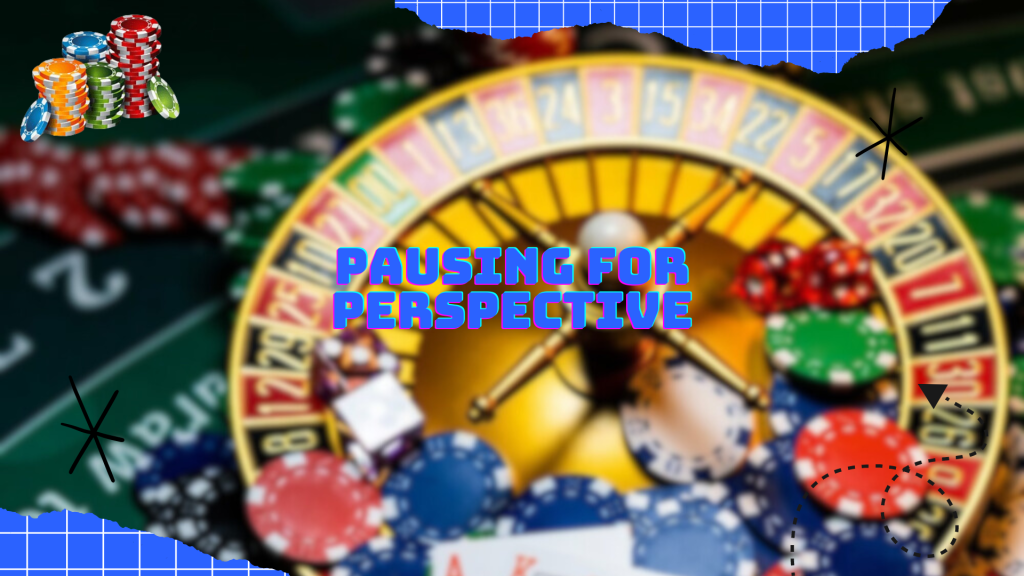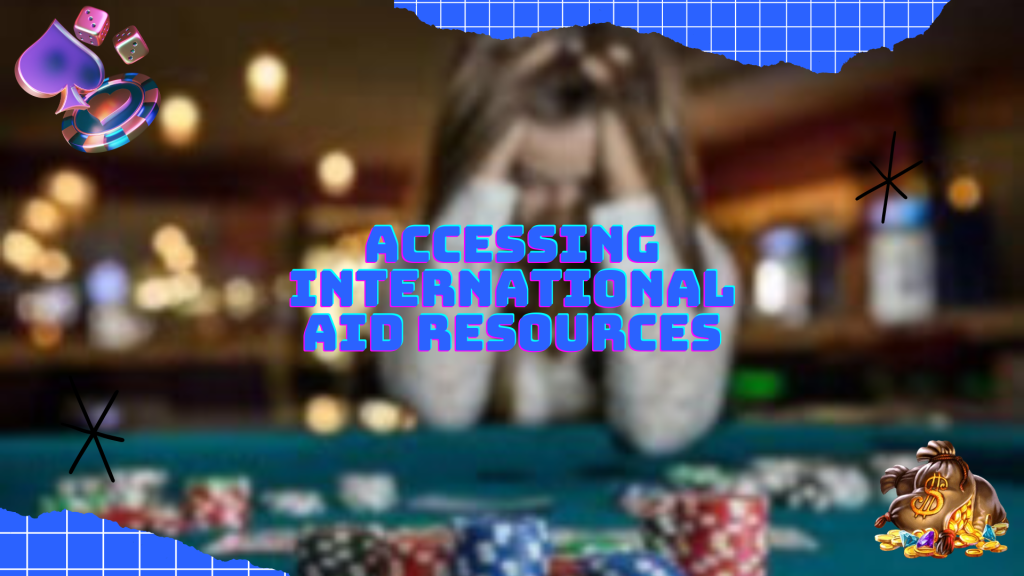
As a beginner in entertainment, it is imperative that you comprehend the jeopardies involved before playing your first game. Although it seems fun and exciting, one must realize that it has real risks that can negatively impact finances, relationships, and mental health if not controlled appropriately.
You need to understand key aspects like addiction tendencies, financial traps, isolation factors and more before putting your money on the line. Being aware of the exact hazards will allow you to participate more consciously. For instance, know that obsessive players are more likely to suffer from what is responsible gambling issues like depression, substance abuse, and even attempted suicide. So don’t let the games overtake your life.
Playing responsibly begins with getting your facts right. Once you understand the realities, you can make informed choices that are less likely to cause harm. Ultimately, this equips you to enjoy the entertainment without falling prey to its dark side.
Crafting Your Own Guardrails
When participating, it is critical that you proactively establish boundaries to avoid falling into any pitfalls. The key is to customize limits that align with your personal situation. Consider taking a responsible gambling course to understand best practices.
Some effective strategies include:
- Define a strict monetary limit per session and do not exceed it under any circumstances. Determine a sum you can comfortably afford to lose.
- Set a firm time duration for play before starting. Ideal session length is 1-2 hours. Set a timer and stop when it goes off.
- Install blocking software that prevents access to sites for a certain period if limits are crossed.
- Maintain records of time and money spent. Review periodically to identify any risky patterns.
- Have alternative recreational plans handy to replace the activity when limits are reached.
Thoughtfully developing and adhering to predetermined limits empowers you to participate more responsibly. And remembering to stay within the guardrails you have set prevents things from going out of control.
Pausing for Perspective

When engaged, it is easy to become engrossed and lose track of time. However, building in deliberate breaks is key to maintaining control and perspective. Stepping back allows you to reorient and make more mindful decisions about continuing play.
You should schedule timed intervals for breaks, such as after every 30-60 minutes. Useful activities during these intervals include:
- Getting a snack or hydrating to refresh
- Stretching your legs and moving your body
- Checking in with your emotions and mindset
- Reviewing time and budget limits
- Connecting with friends and family
Structured breaks empower you to consciously choose to continue, leave the session entirely, or implement further restraints. Without these pauses, you risk becoming swept away and abandoning your predetermined boundaries.
Plan your intervals and use the time to regain wider context. This facilitates responsible participation where you call the shots, rather than allowing the games to fully consume your faculties. The clarity from stepping back is invaluable.
Internalizing Accountability
Playing with awareness requires that you hold yourself responsible for all choices and behaviors. Avoid seeing yourself as a passive participant being strung along. Instead, consciously own your agency in each moment.
Read also about Cashwin.
View it as an entertainment expense rather than a money making activity. Only risk sums you have allotted for amusement, nothing more. If luck results in winnings, see that as an added perk rather than expected outcome.
Additionally, be hyper aware of your mental and emotional state before and during play. Never participate simply to numb or escape negative thoughts and feelings. And monitor yourself for signs of excessive fixation that suggest loss of control.
Use resources in responsible gambling Australia like game spending trackers and limit setting tools. Being organized and self-disciplined is key.
Ultimately, the outcomes reside fully within the power you choose to exercise. By participating thoughtfully, you claim authority over its role in your life. Never relinquish that jurisdiction to external forces like games of chance.
Seeking External Support
Despite your best efforts, you may find your participation becoming problematic and difficult to control on your own. It is important to swallow your pride and seek assistance before things spiral out of hand.
Some warning signs include:
- Pleas from loved ones about your habits
- Inability to adhere to predetermined limits
- Obsessional thoughts
- Growing financial strains due to losses
If you recognize such patterns, especially during responsible gambling awareness month, take action by:
- Speaking to a counselor
- Calling a support hotline
- Exploring therapy options
- Considering medication for impulse control
- Attending group support meetings
- Self-excluding from venues
While wanting to handle things independently is understandable, getting professional help can provide you with healthy mechanisms for gaining control. And surrounding yourself with folks who have been in your shoes can help you feel less alone. Admitting vulnerability is courageous, not weak.
Accessing International Aid Resources

When seeking help, it is invaluable to leverage global support networks. Organizations like the responsible gambling association connect those struggling with addiction to resources, communities, research, standards and more.
Below is a list of leading international associations assisting addicts:
| Organization | Location | Services Offered |
| US National Council | United States | Helpline, treatment provider directory, advocacy |
| UK GamCare | United Kingdom | Advice line, forum, financial assistance |
| International Centre for Responsible Gaming | International | Research funding, standards development |
| European Regulations | Europe | Public policy, prevention initiatives |
| Asian Pacific Association | Asia Pacific | Public awareness campaigns, industry regulations |
With strong national and cross-border aid mechanisms, individuals can access help despite geographical barriers or local resource limitations. No one has to feel alone in their fight toward reclaiming wellbeing. Support exists through channels like multilingual helplines, online forums, and best practice sharing.
Lessons from Shared Struggles
Reading first-hand accounts of problem participants working to reform their relationship with games can inspire your own journey toward responsibility. Numerous responsible gambling articles chronicle the successes and setbacks of those who once lost themselves to addiction.
For instance, Sam described emptying his retirement savings within a year due to online sports play. After coming clean to his family, he installed blocking software, terminated accounts, and began therapy. Staying plugged into a support group kept him on track when cravings arose.
Lisa grappled with secret trips to local venues that put her into debt. A workplace intervention motivated her to seek help. Though initially ashamed, she now publicly shares her experience to raise awareness about addiction impacts.
Absorbing relatable stories helps you feel less alone. You also gain perspective and practical ideas for changing course. While each person’s background differs, the desire to regain control resonates universally. There is comfort and power in learning from those further ahead in the process.


